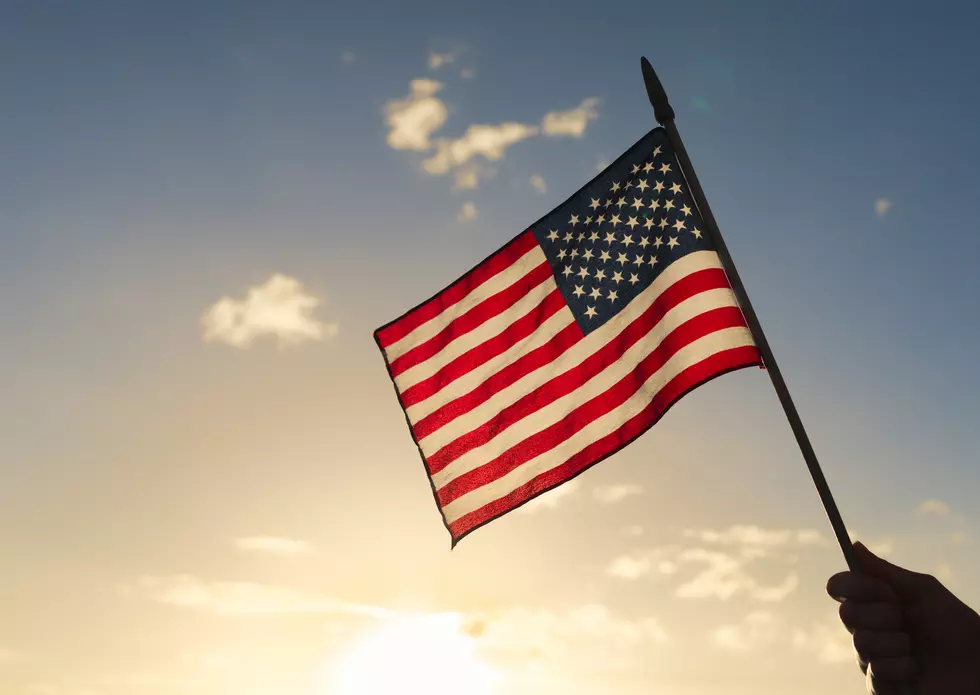
The Star-Spangled Banner First Gained Popularity in South Dakota
It's an American tradition steeped in history. Sung before every rodeo, sporting event, and spectator sport, the Star-Spangled Banner is belted out and heartfelt applause follows - unless you are Rosanne Barr. Then, not so much. The United States adopted the song as our National Anthem in 1931.
Although the National Anthem officially comprises all four stanzas of the Francis Scott Key poem, only the first stanza is generally sung, and the other three are much lesser-known. But it's 2020, and things are taking a different tone and meaning. Some feel "The Star-Spangled Banner" strikes a sour note. Last week in San Francisco a statue of the lyricist Francis Scott Key was toppled -- in part because of his record as a slaveholder.
In particular, the 3rd verse is brought up in conversation from those who wish to do away with the anthem altogether. It says, “No refuge could save the hireling and slave/ From the terror of flight or the gloom of the grave/ And the star-spangled banner in triumph doth wave/ O’er the land of the free and the home of the brave."
It is interesting to note that a plaque displayed at Fort Meade, South Dakota, claims that the idea of making "The Star-Spangled Banner" the National Anthem began on their parade ground in 1892. (it wasn't adopted by the Navy until 7 years later.) According to Wikipedia, Colonel Caleb Carlton, post commander at Fort Meade, established the tradition that the song is played "at retreat and at the close of parades and concerts." Carlton was so insistent on the idea that he brought it to the attention of Governor Sheldon of South Dakota who pledged to have the song established among the state militia. Carlton then brought it to the desk of Secretary of War Daniel S. Lamont, who later issued an order that it "be played at every Army post every evening at retreat."
According to Black Hills Visitor, "The Fort was also the birthplace of the custom of playing the Star Spangled Banner at military functions beginning in the early 1900s. After the Fort Meade custom was publicized in the early years of the twentieth century President Woodrow Wilson made it mandatory in 1916. Congress designated it as the National Anthem in 1931."
Fast forward 120 some years later and it finds itself embroiled in controversy. Some feel that "America the Beautiful," "God Bless America" and "This Land Is Your Land" would be a better fit for the official Nationa Anthem of the United States.

Top 10 Classic Rock Concert Experiences
More From KXRB








![Kid Breaks Cymbal and Has Awesome Recovery [VIDEO]](http://townsquare.media/site/482/files/2013/06/Capture1-e1370273682951.png?w=980&q=75)
